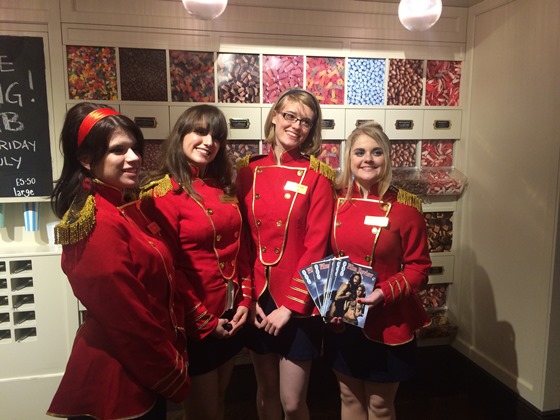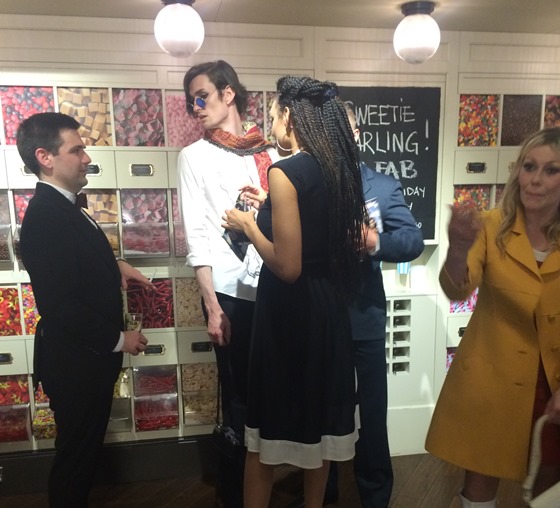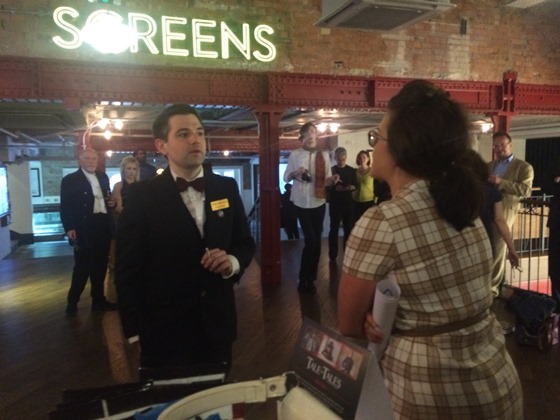Filmgoers got the chance to experience a night at the cinema as it would have been in the Swinging Sixties as De Montfort University Leicester (DMU) academics turned the clock back at a London cinema.
For one night only it was 1966 at the Picturehouse Central, Piccadilly, with talent contests, publicity stunts and drama, plus the screening of Hammer Films’ One Million Years BC and original trailers from the period.

Academics from DMU’s Cinema and Television History research centre plus Dr Alissa Clarke and senior lecturer Kelly Jordan of DMU Drama – along with many talented drama students - worked together to create an original cinema-meets-theatre immersive performance.
The actors’ dialogue, dramatic scenes and events were drawn from 1,000 people’s memories of going to the cinema in the 1960s. Researchers spent three years travelling the length and breadth of the country speaking to people about their experiences.
As people arrived for the film, they mingled with actors playing a whole host of characters including London’s trendy Chelsea set, Mods, activists, usherettes and even film producers searching for a star.

And some got the shock of their lives when actors playing cavemen staged a stunt fight in the bar – an example of the sort of publicity gimmick which could be expected in metropolitan cinemas.
The antics in the immersive night came as a surprise to some of the visitors to the Picturehouse. Filmgoer Julie Hastings said: “I didn’t know what was going on at first, it was a bit of a shock when I saw cavemen suddenly fighting in the middle of the bar! I didn’t realise all this went on in cinemas in the Sixties.”
RELATED NEWS
Sixties director Peter Whitehead donates archive to DMU
Rare Dracula script unearthed in DMU's Hammer archive
David Sellers, from Camden, said: “Seeing the old adverts and the usherettes with their ice creams again brought it all back!”
There were cheers from the audience as feminists invaded Hammer’s “Girl in a Million” talent search, while a sub-plot involving an usherette finding out her boyfriend had dumped her had people consoling her with shouts of “he’s not worth it, love.”

Dr Matt Jones, of DMU's CATH research centre, said: “Bringing memories to life is an unusual, quirky approach to sharing research findings, but the response from the audience tonight has been incredible. It seems that, by living the life of a 1960s cinema-goer for the evening and experiencing the tastes, sounds, pleasures and irritations of that era’s cinemas, people were able to connect with the results of my research on a very personal level. Collecting memories of 1960s cinema-going revealed many unusual and otherwise undocumented aspects of this cultural activity and it has been a pleasure to share them with the public in such a creative and innovative way.”
The Arts and Humanities Research Council had funded the research, Cultural Memory and British Cinema-going of the 1960s.
It aimed to shed light on the nature and social significance of 1960s cinema-going and was run by Professor Melvyn Stokes of University College London, Dr Matt Jones of DMU and Dr Emma Pett of the University of East Anglia.
A dress rehearsal of the event at Leicester’s Phoenix Cinema had been a sell-out. As the custodian of the Hammer Film Archive, DMU was able to draw upon materials from the archive for the event.
Posted on Thursday 30 June 2016